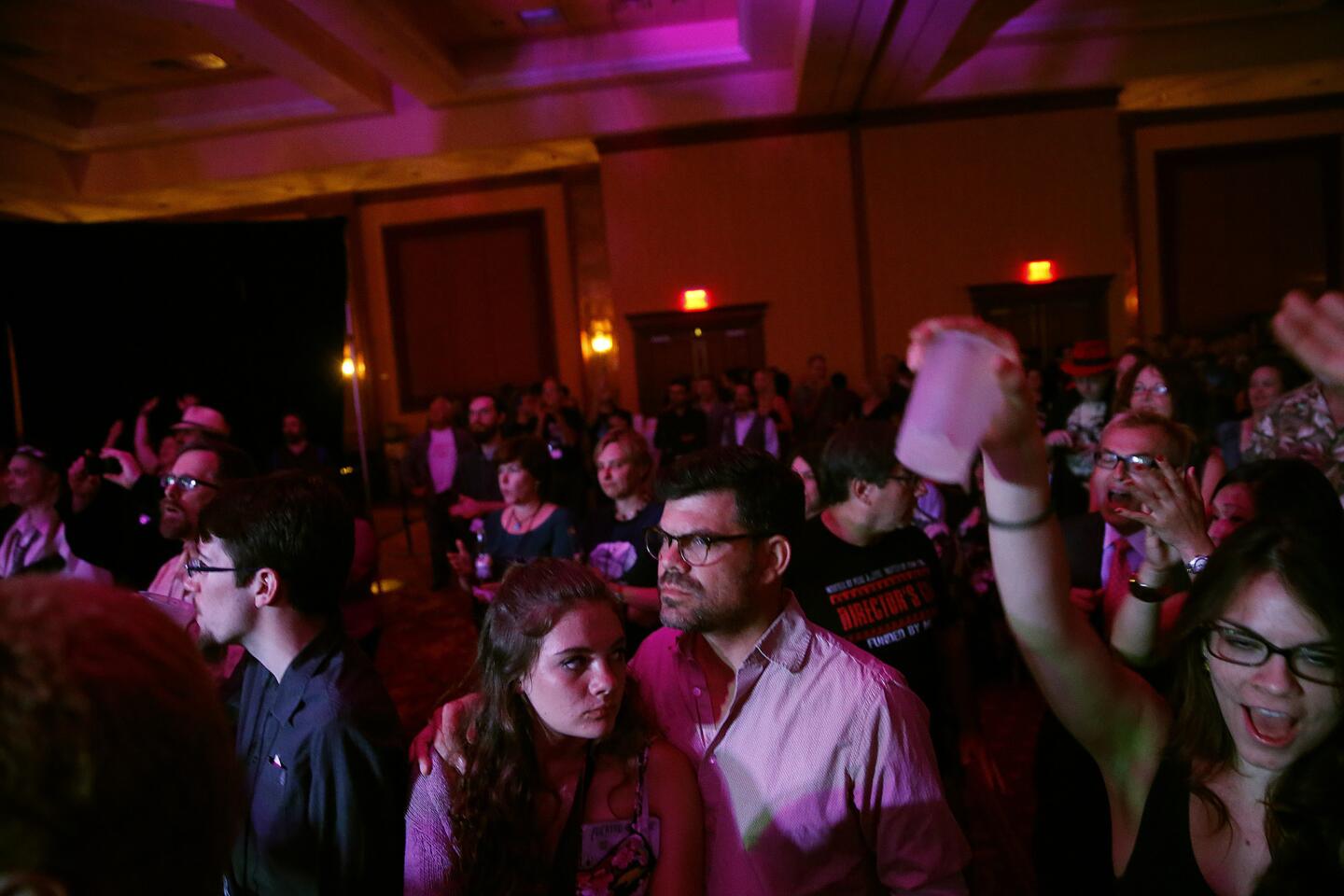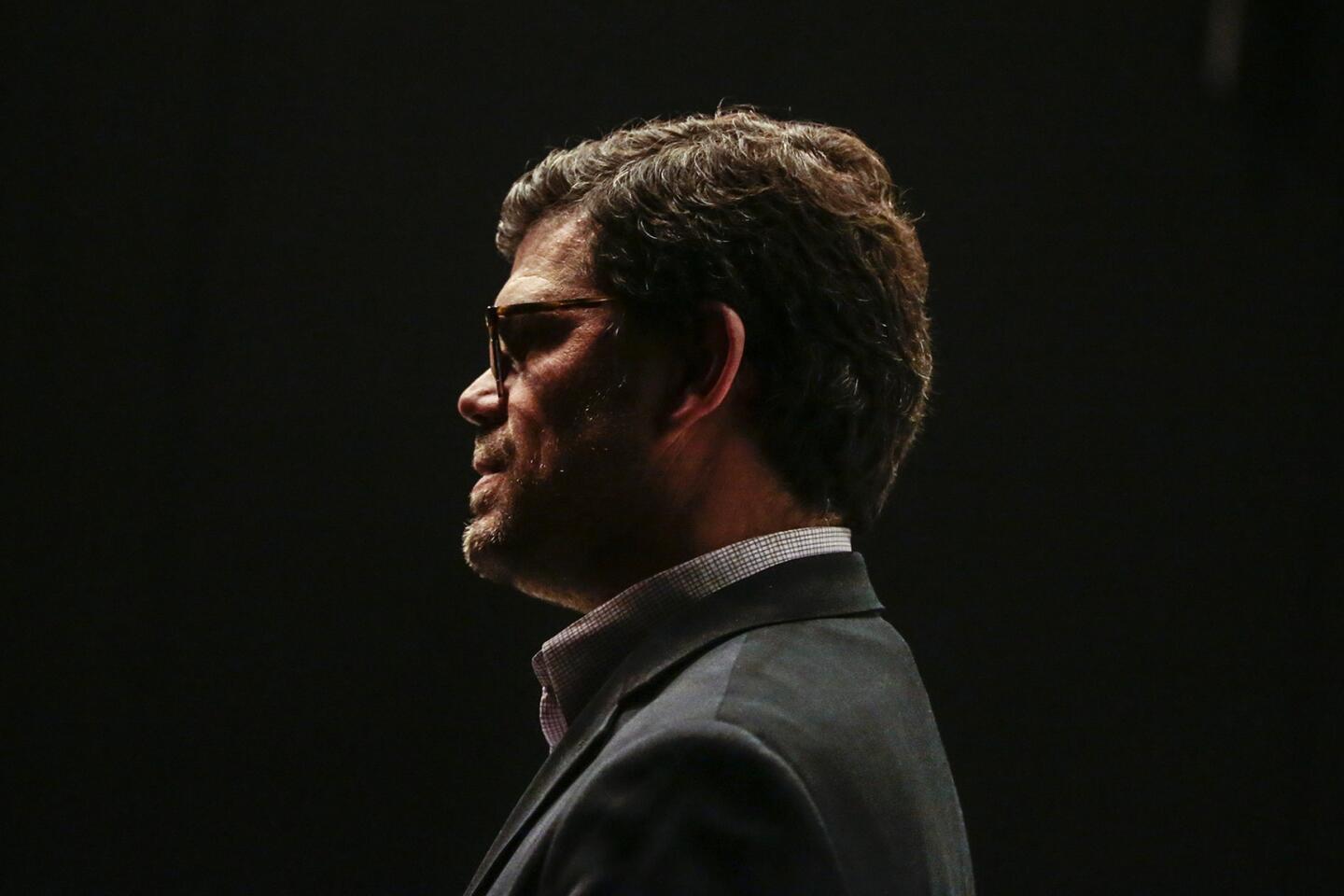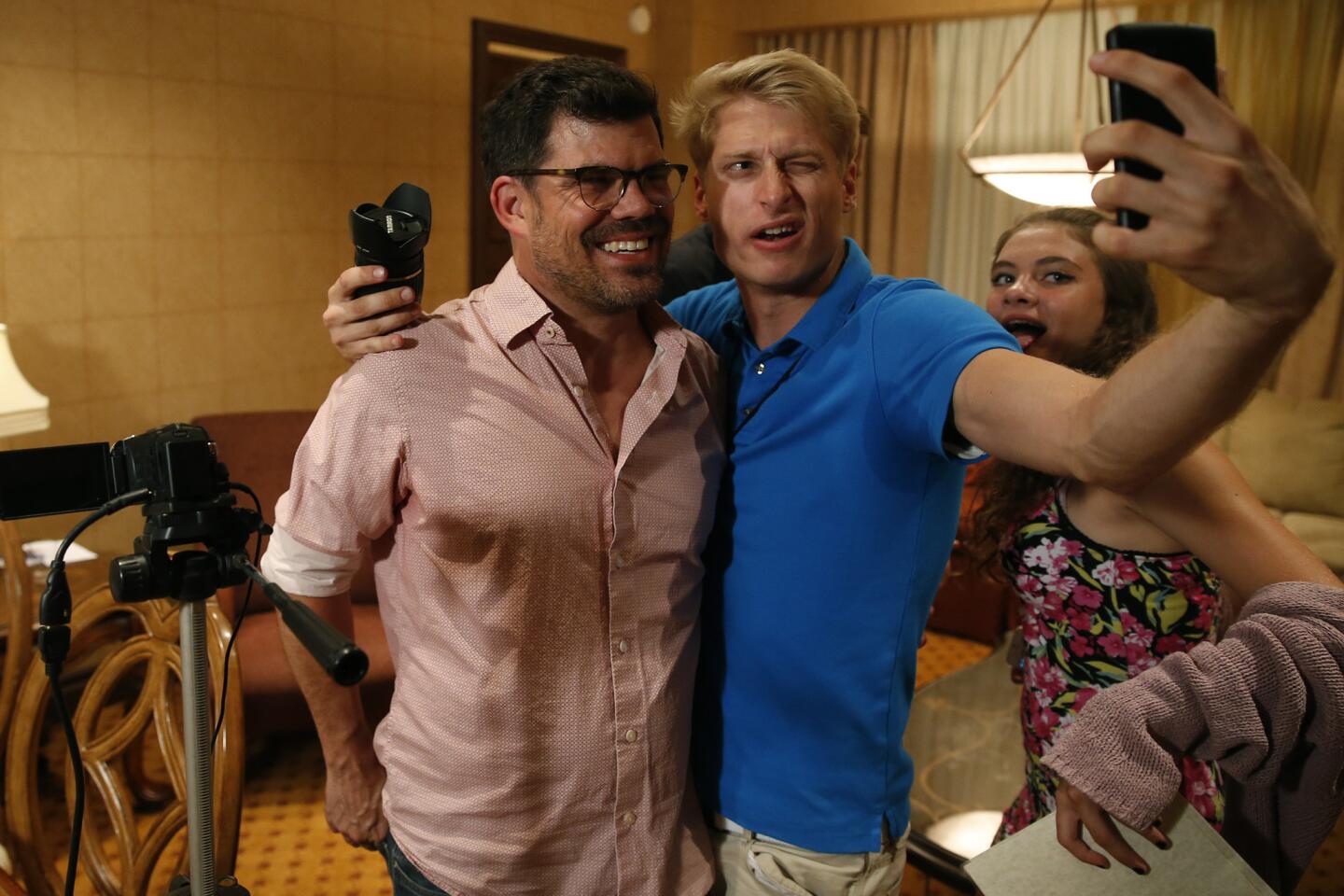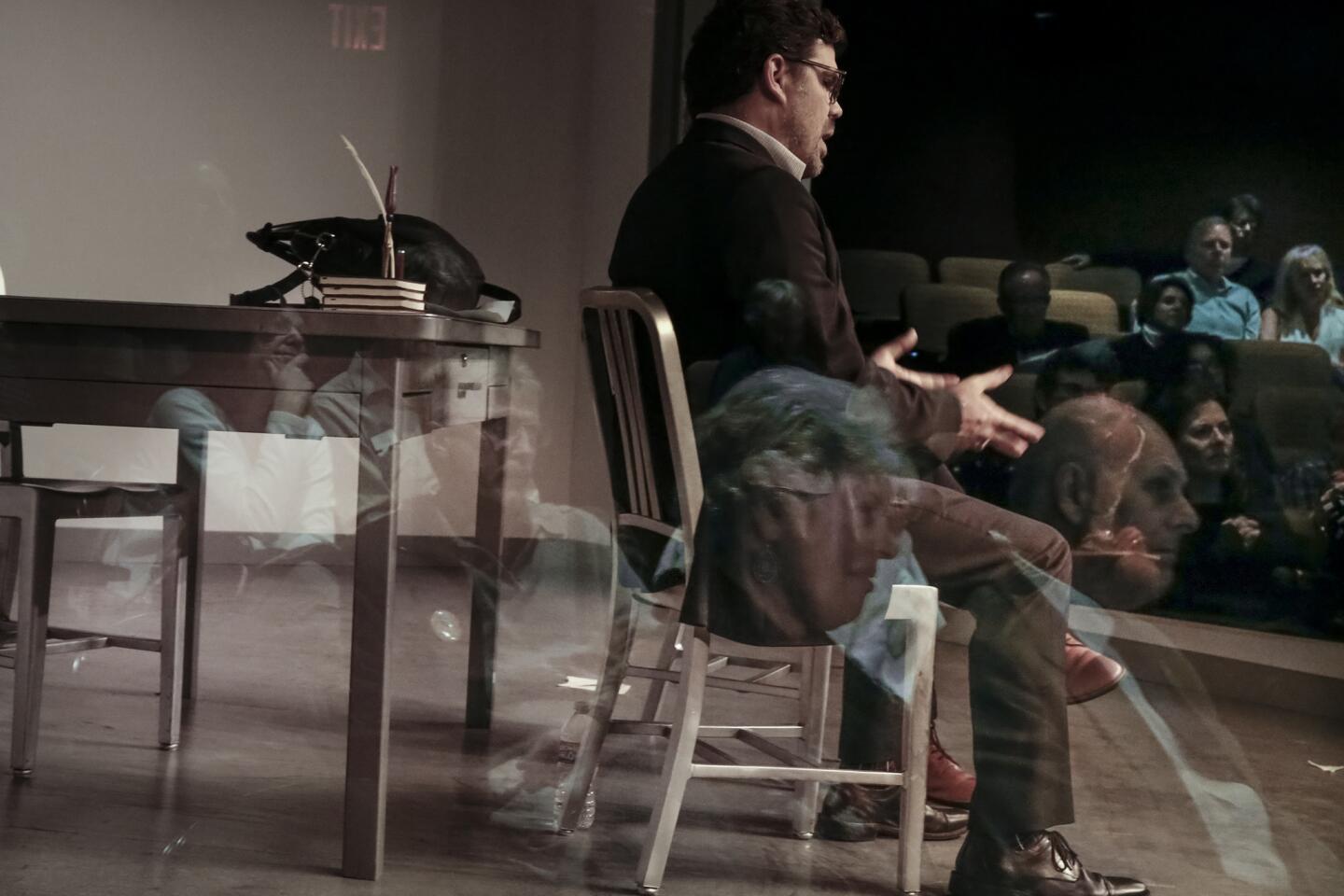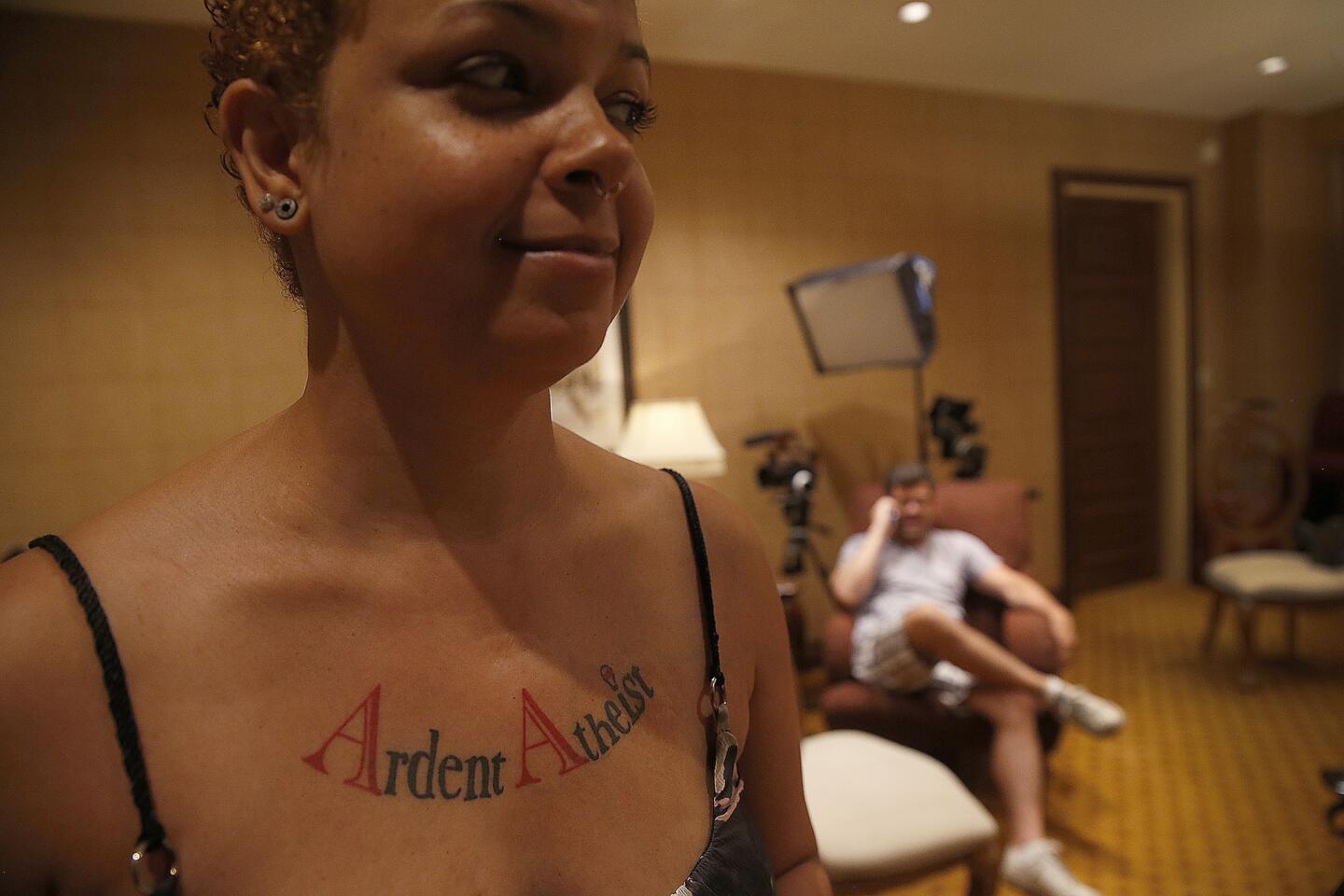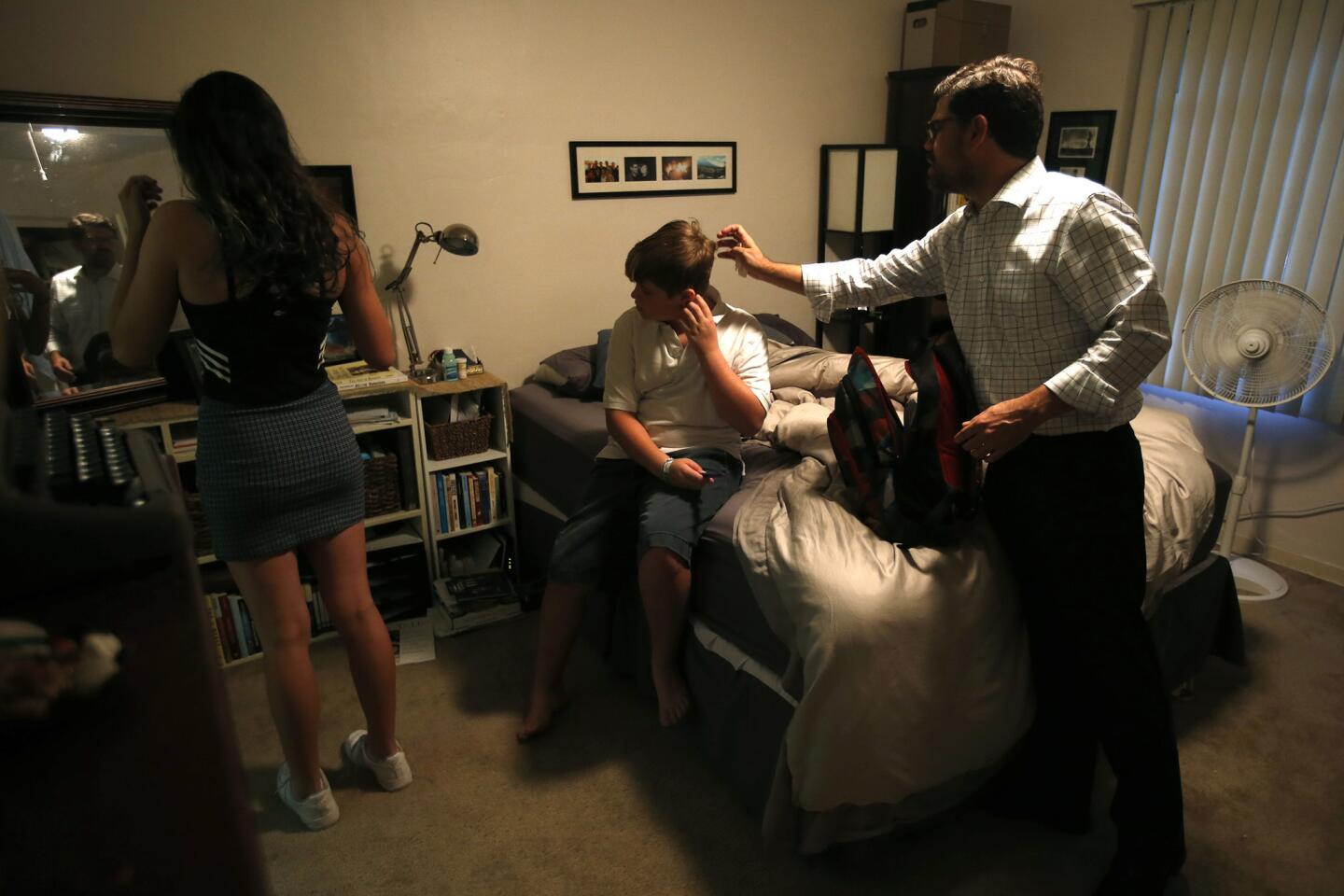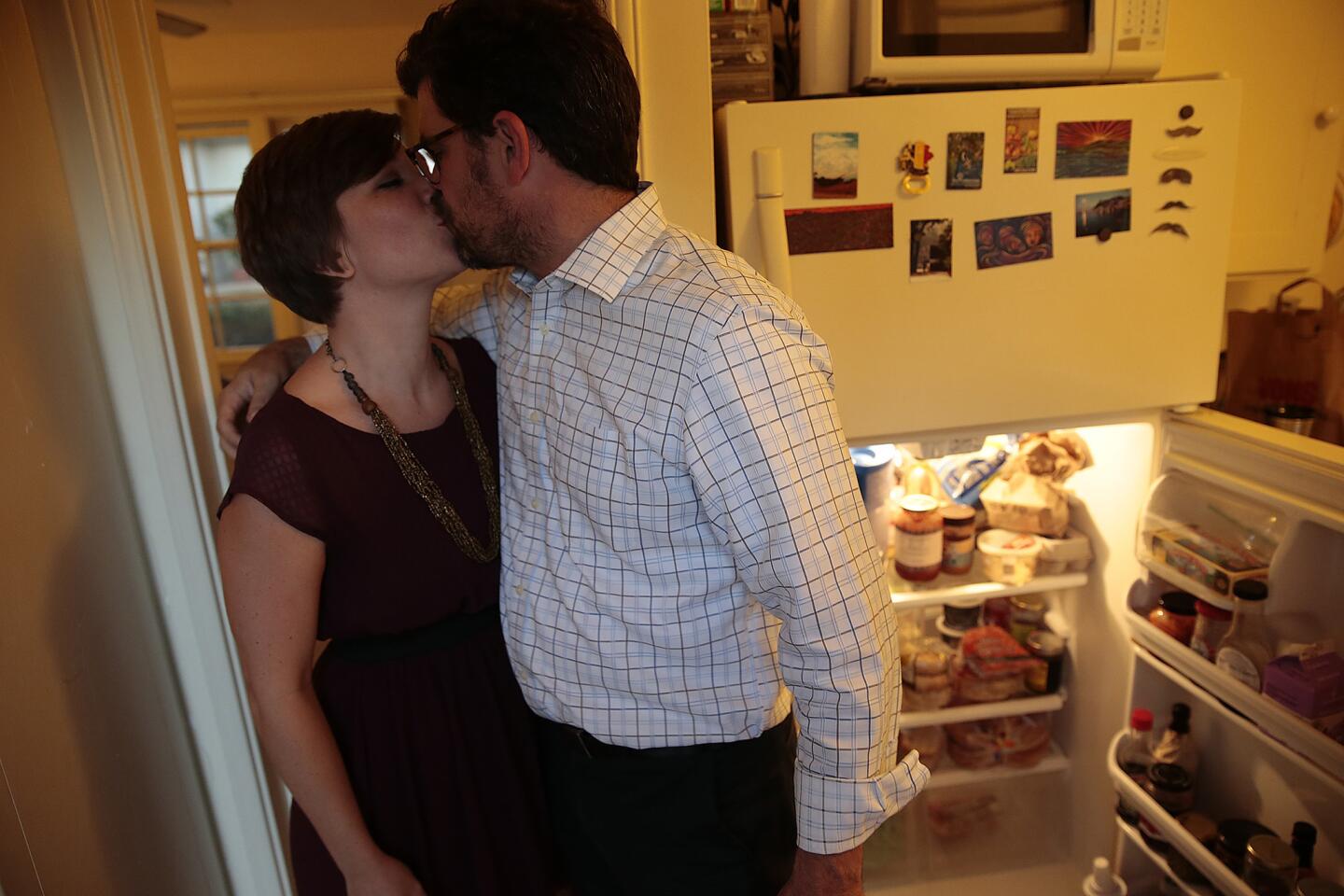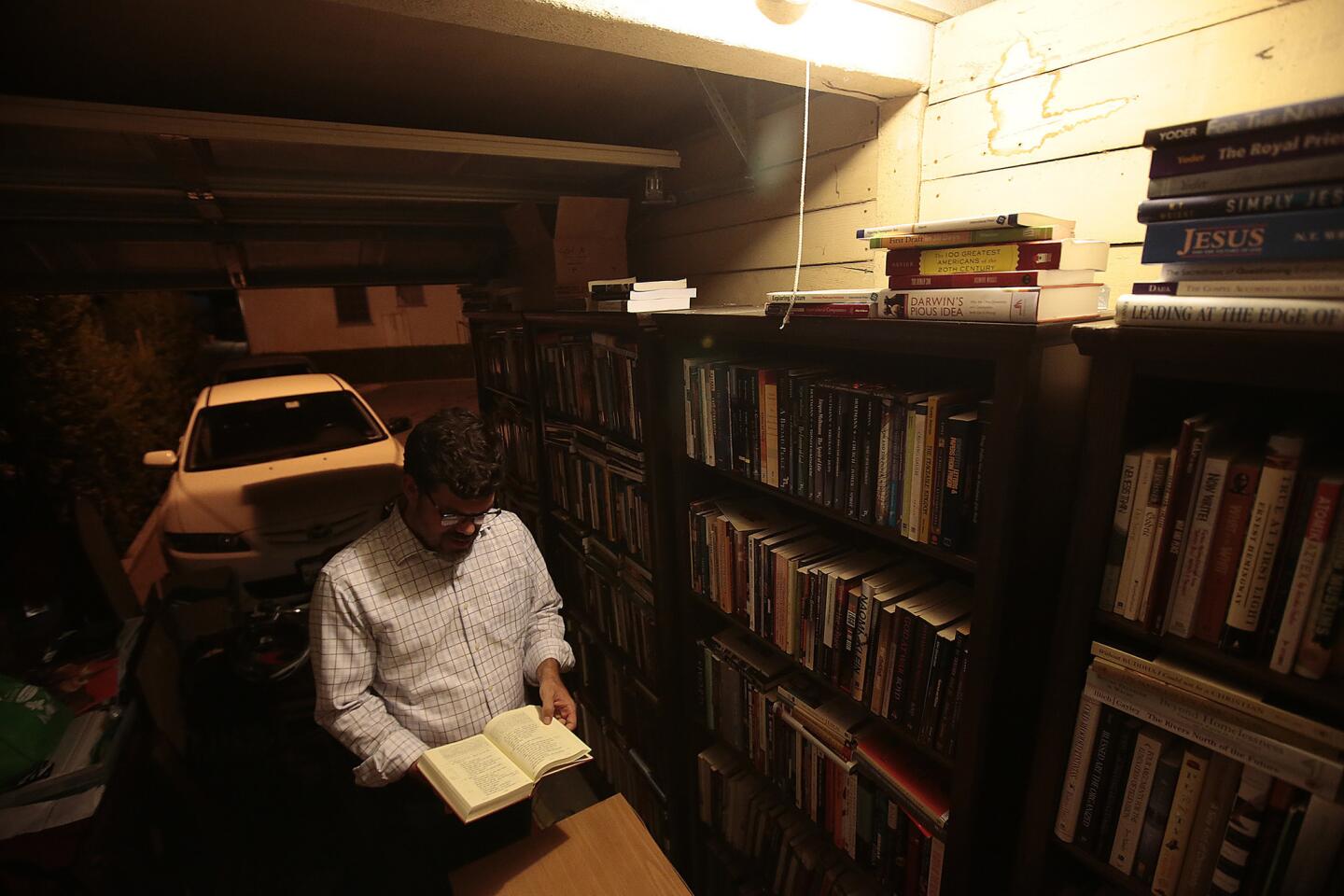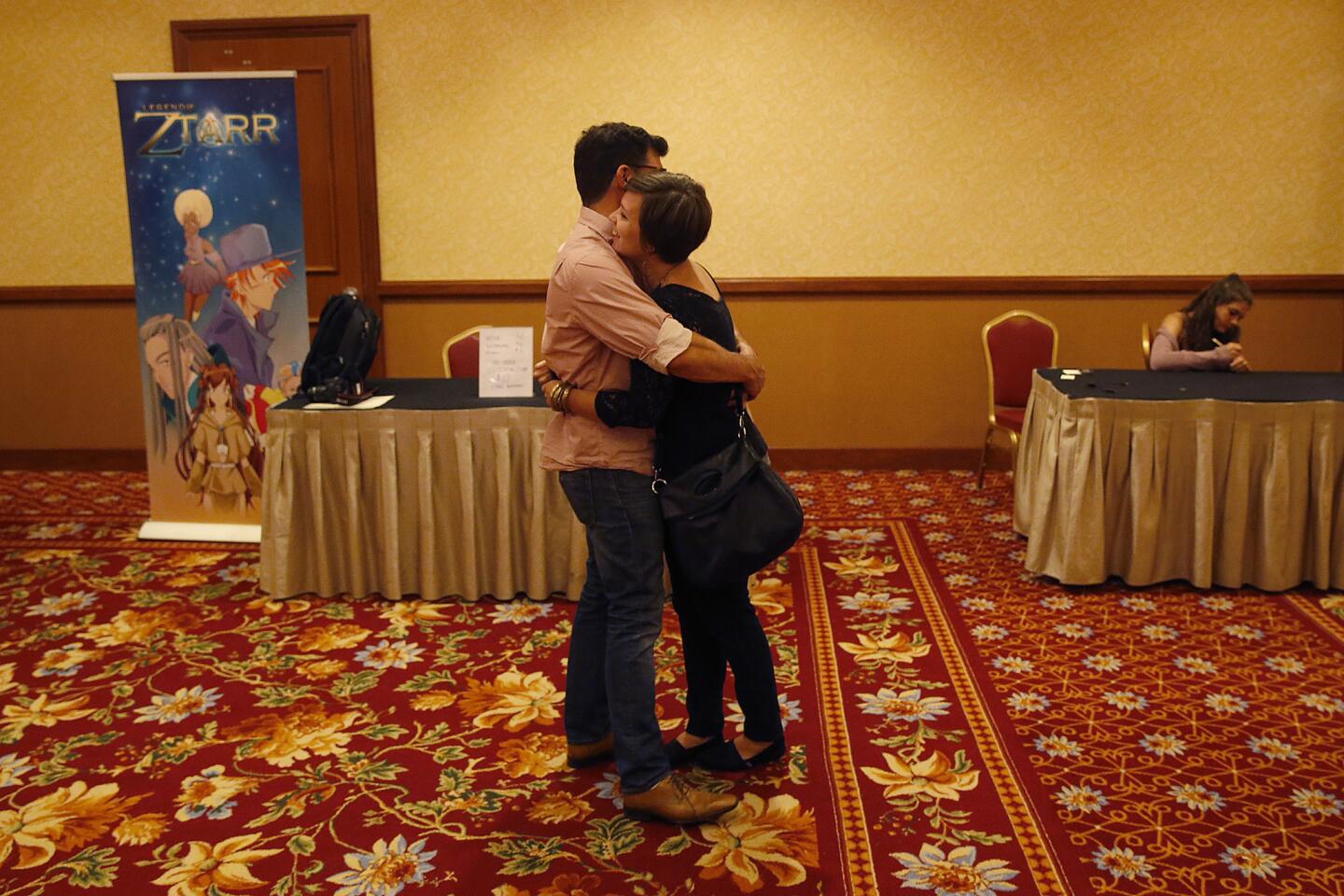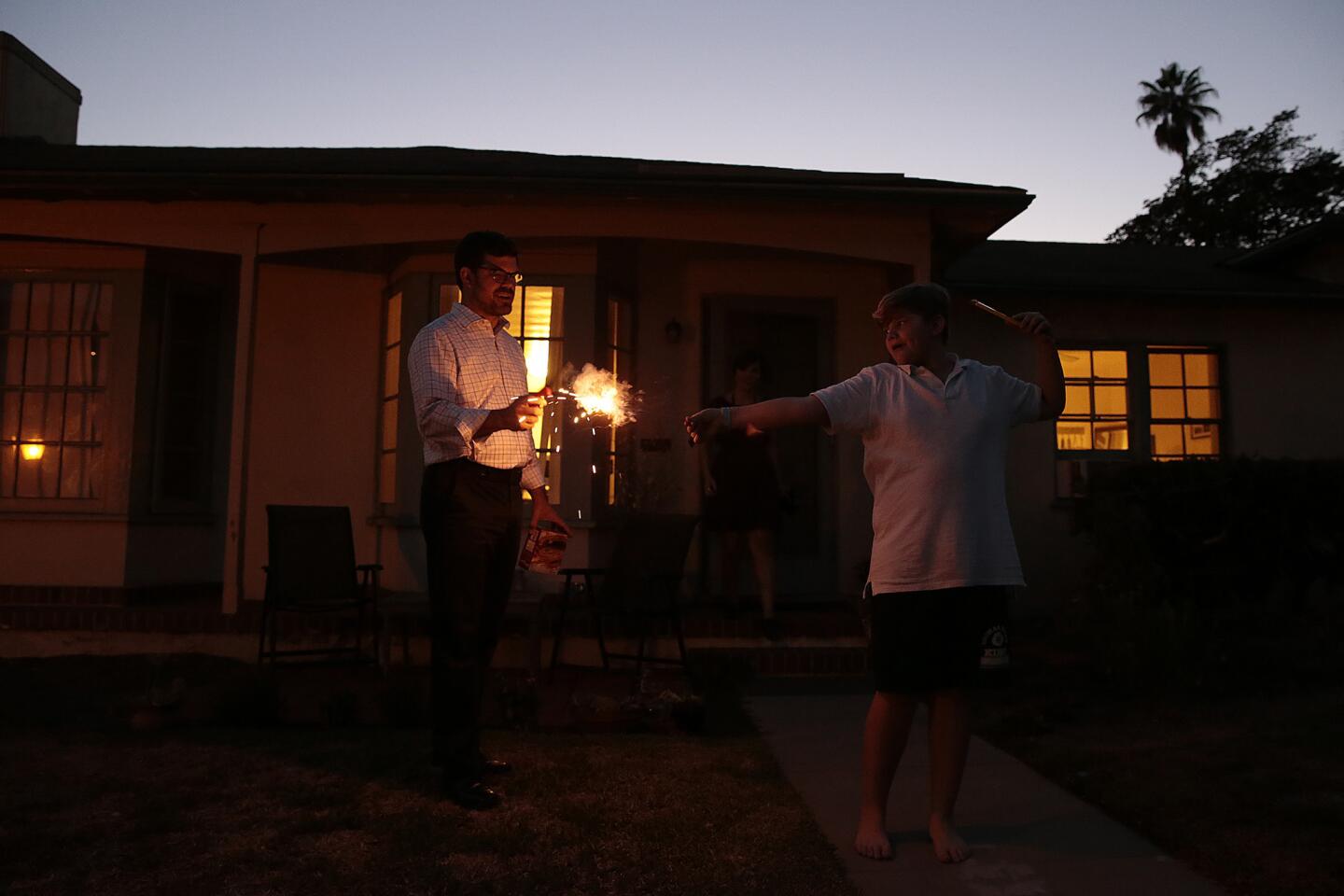Great Read: Ex-Seventh-day Adventist pastor takes a yearlong timeout from God
- Share via
“Uh, I’m not exactly sure about all this,” Ryan Bell said as he scanned the scene inside a darkened Las Vegas convention hall.
A stripper whirled her hips. A rock band pumped out a song about cannibalism. A man’s shouting hung briefly over the packed crowd: “God is dead!”
For nearly two decades, Bell had pastored congregations of Seventh-day Adventists, among the most conservative denominations in Christianity. How had he ended up at a gathering of atheists and skeptics in Sin City?
It had been a long time coming. For years now, it felt as if his prayers weren’t being answered. He secretly wondered whether a higher power existed at all.
So, last Dec. 31, he published a blog post that went viral.
“For the next 12 months I will live as if there is no God,” he typed. “I will not pray, read the Bible for inspiration, refer to God as the cause of things or hope that God might intervene and change my own or someone else’s circumstances. (I trust that if there really is a God that God will not be too flummoxed by my foolish experiment and allow others to suffer as a result).”
Now it was July, just over midway in his journey. Bell had spent as much time as he could reading about science and philosophy, interviewing agnostics and atheists, working to decide what he would believe when the year was done.
He’d come to Las Vegas to attend the convention of skeptics — an ardent subculture devoted to lambasting everything from believers in Bigfoot to claims that Jesus Christ was anything more than a charismatic human being.
The band, the stripper, the boisterous crowd? All were part of a night of reverie hosted by magician and atheist Penn Jillette. But shortly after the show began, Bell left, shaking his head, feeling caught between worlds.
“Not so long ago I was pastoring a church, and here I am, surrounded by all these atheists singing for shock value about how terrible God is,” he said. “It doesn’t feel like these are my people. Then again, most of this year, it’s been hard to say who exactly my people are.”
::
Bell, 43, was born in Ohio but grew up mostly near Loma Linda, a Southern California suburb populated largely by Seventh-day Adventists.
In his teens, he didn’t drink, smoke or swear. Eating meat was forbidden. “I didn’t believe in evolution because my grandparents didn’t believe,” he said.
He would come to develop a guilty pleasure: listening to the Beatles, Bob Dylan and U2. But when he headed off to the church’s deeply observant Pacific Union College, in Northern California, he left behind his music and vowed to live an even stricter life.
“He was unusually conservative, even for this school,” remembered one of his English professors, Nancy Lecourt. She recalled asking her class to read 18th century philosopher Voltaire — and a young Bell refusing on the grounds that writing such as Voltaire’s defiles the soul.
It was hardly surprising when, after graduation, Bell became a pastor, assigned to a clutch of churches in the suburbs of Philadelphia. His new parishioners, though still conservative, didn’t fit the mold he’d known before. Some wore makeup and jewelry. A few smoked, cursed or spent money on Saturdays, the Adventist day of worship.
“It all hit me at once,” said Bell, strong-jawed with thick glasses, thick brown hair and a slight paunch. “I mean, the messiness of the journeys of my congregants. I was meeting people who were living with a goodness I’d always hoped for, yet they did things that the church didn’t approve of.”
In 2005, he moved with his wife and two young daughters to California, taking over the ministry at the curving, vaulted Adventist church in Hollywood.
“People who had been at the fringes of the church, who were not sure they wanted to go back to organized religion, he gave them space to feel they were part of this,” said Leslie Foster, a filmmaker who was part of a swell of new members flocking to the church once Bell arrived. “He created a home.”
This new version of Pastor Bell focused less on individual salvation than social justice. It wasn’t long before he was speaking out against Bank of America for what he considered predatory lending practices. Or demonstrating during the Occupy takeover of the lawns at City Hall. Or advocating for gay rights and marriage equality.
All along, his doubts grew. The more he prayed, the more prayer felt useless. The more he tried to reconcile the Bible with science, the more it seemed he was putting together a puzzle with parts that didn’t fit. The more he thought about the unceasing suffering in the world, the more he doubted God’s existence.
By early last year, pressure was mounting. Part of it was personal. After 17 years of marriage, he and his wife were headed for a divorce. Part of it was his calling. In March, after a long battle with regional Adventist officials on almost every major point of theology, he agreed to resign.
Without a church, living alone, Bell felt dazed.
Recalled Randall Frederick, a close friend and theology student at Fuller Seminary: “He’d just lost so much faith, he did not know what to believe in.”
On a rain-swept afternoon at a Pasadena restaurant, Bell and Frederick met for lunch. They joked about a popular book by an evangelical author who had vowed to live biblically for 12 months. An idea came. Maybe, to give his life focus again, Bell should take his doubts to their full conclusion, at least for a while.
::
The storm of attention after he turned his back on God took Bell by surprise. Within two weeks, he was explaining himself on CNN, NPR and the BBC.
His blog posts were jammed with hundreds of comments, then thousands. There were supportive notes. And plenty calling him a charlatan, an opportunist, a fraud who was courting hellfire while influencing others to follow along the way.
“This is madness, spiritually speaking,” said Christian podcast host William Lane Craig. “If this man really does consistently live out an atheistic lifestyle, it could do irreparable harm to the Christian church.”
Soon Bell spun into depression, and not just because of the criticism.
He was jobless. The announcement had cost him teaching positions at Fuller Seminary and the evangelical Azusa Pacific University, because he could no longer adhere to rules stipulating that faculty members believe in Christ.
In his old life, he would have prayed. He beat back the temptation.
“I just have to weather the storm,” he said, sitting in a Los Angeles cafe. It was March. His shoulders slumped. Bags sat heavy under his eyes. “Just make it through all this.”
By April, his views on faith were starting to become clearer. “I could very easily say there is no God,” he said. “I feel that way a lot of the time.”
There was a hesitancy in his voice. Yes, great beauty and meaning could be found if one focused solely on the material world. But seeing things that way posed problems.
“It takes this beautiful world and reduces it to atoms and electrons. Where did it all come from? Are we just the sum of our parts?”
Such questions kept him up at night, reading in the small Pasadena apartment he’d rented, surrounded by his books. He’d searched for answers before, but never with this intensity, or from the starting place that there was no God.
He felt ostracized by those in organized religion. But nonbelievers were thrilled to have him at their events or speaking on their panels, and an advocate for atheists had started an online fund to help pay his bills.
“It feels like I am now a pastor to the irreligious,” he said, walking through the Las Vegas hotel at the convention. “Not that I want that role, but the way people are responding to me, it’s pretty revealing. It feels like I’ve touched some sort of cultural nerve. There’s just a lot of people questioning everything these days.”
Life started to feel good again. He’d gotten a job teaching life skills at PATH, a nonprofit helping the homeless. He’d also started dating Rebecca Pratt, a devoted Christian, of all things — open-minded and unafraid to stop him when he’d lapse into negative generalizations about religion.
The year pushed on. He became more and more comfortable in this new, questioning life.
He described himself, temporarily at least, as a “weak atheist.” Fine with not having all the answers about life’s origins, its meaning, its end.
“Either God has responsibility or he does not,” Bell said. He recalled the South Korean ferry that sank in April, killing 304 people, most of them students. “If he does, it seems like he is doing a pretty bad job. If he does not, if he just wound the thing up and walked away, I don’t see any point in worshiping a God like that.”
Bell grimaced. A moment passed. Then he smiled. He was finally free to speak such thoughts.
::
On Christmas, the former pastor will give gifts and thank his family and friends. He has no plans to attend services but isn’t adamant about staying away. He says he still loves the rituals, whether he believes in Jesus’ virgin birth or not.
After that, Jan. 1. The journey will be over.
Skeptics and nonbelievers are ready to officially welcome him to the fold. Bell has heard from Christians who pray he’ll return to their side. “I am hoping he will come around, back to some form of Christianity, hopefully to Adventism,” said Lecourt, his college English teacher.
There will be an announcement on where he stands, most likely on his blog. For now he won’t divulge exactly which camp he’ll end up in.
It’s hard to imagine him going back to the God of organized faith. It’s also hard to imagine him joining the crowd contending that God is imaginary and that belief is the source of most of the world’s ills.
“I do think I’ve now seen both sides of the coin,” he said on a recent day. “Being with the atheists, they can have the same sort of obnoxious certainty that some Christians have, and I don’t want to be a part of that. It feels like I’m stuck in the middle. I want to be for something good, but I don’t want boundaries, and religion just feels like a very bounded thing.
“The question I am asking right now: Why do I need religion to love?”
Twitter: @kurtstreeter
More to Read
Sign up for Essential California
The most important California stories and recommendations in your inbox every morning.
You may occasionally receive promotional content from the Los Angeles Times.
